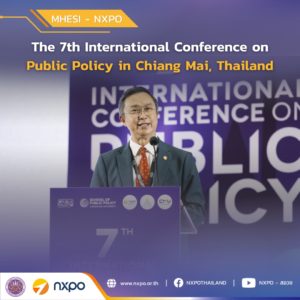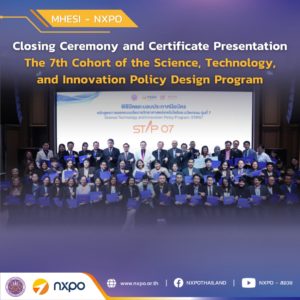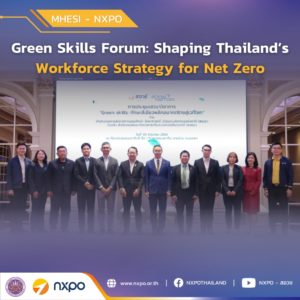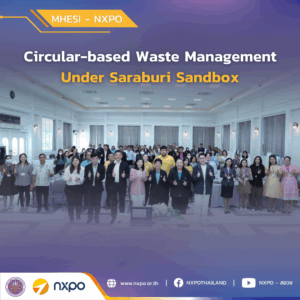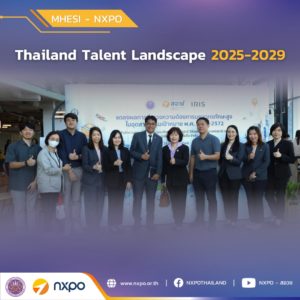On 20 August 2021, NXPO President Dr. Kitipong Promwong gave a presentation on BCG economy and preparation of manpower at an annual meeting of Thai students in the United States organized by the Office of Science and Technology (OST), Royal Thai Embassy, Washington D.C. The meeting aims to develop network of collaboration among Thai students studying in the US and Canada, as well as with Thai professionals working in North America and agencies under Thailand’s Ministry of Higher Education, Science, Research and Innovation (MHESI). His presentation is summarized below.

Bio-Circular-Green economy, or BCG model, has been declared a national agenda by the Thai government and the main theme for the Asia-Pacific Economic Cooperation (APEC) Summit in 2022 to be hosted by Thailand. The model enables a balance between economic growth and sustainability of natural resource and the environment by employing science, technology and innovation to create additional value to bioresources and enhance the competitiveness.
BCG model focuses on four sectors, namely food and agriculture, energy and material, medical and wellness, and tourism and creative economy. The model looks at players in the value creation pyramid, the top of the pyramid being the small number of players utilizing advanced technology to produce high-value goods and services, and the base represents a large number of players, mainly farmers and SMEs, who need moderate and proper technologies to elevate quality and productivity. The model intends to build capacity of both groups as the top will enhance the national competitiveness and free the country from middle-income trap whereas the base will reduce social disparities.
Targets have been set for the BCG strategic policy. These include Thailand becoming a vaccine research and production hub of ASEAN, a sustainable tourism destination and ranking in the world’s top-10 producers and exporters of functional ingredients, as well as building value creation with microbial technology and transitioning to a low-carbon and clean-tech economy. A number of initiatives have been launched such as the National BioBank of Thailand for conservation and utilization of biological resources, Genomic Thailand for precision medicine, Regional Science Parks for building regional economic and innovation corridor, big data analytics for poverty eradication and precision agriculture, and Biorefinery Pilot Plant for advancing lab-scale to industrial-scale production. The first Bio-Circular-Green Complex in Asia has been initiated under a cooperation of Ministry of Industry, Thai Eastern Group, Ministry of Natural Resources and Environment, BOI and Chon Buri local administrative office. The project is expected to create 8,000 jobs in 3 years and 100 billion THB/year economic value, and contribute to the grassroots development by promoting community-based renewable energy such as solar-power water pump and biogas production from waste.
In the first quarter of 2021, 90 BGC-related projects worth 40.71 billion THB in total were submitted to the Thailand Board of Investment (BOI) for the investment promotion. This amount accounted for 58% of the total investment applying for BOI promotion. Industry – especially food and pharma sectors – is putting more investment into BCG.
In term of public research fund, 855 million THB has been allocated from the STI fund to support 261 BCG projects. Regional science parks and Food Innopolis have been implementing activities to support BCG development including an establishment of Future Food Lab to provide SMEs an access to research facility and expert.
A number of incentive measures and mechanisms have been introduced to promote BCG investment in enterprises. Tax deduction is offered to enterprises engaging in human resource development in STEM. Programs supporting startups and developing innovation-driven enterprises have been established, aiming to drive the IDE’s revenue to 1 billion THB. These programs include Innovation Fund for SME and a university holding company to promote public-private investment.
The study conducted by NXPO revealed the demand for skilled workforce to fulfil 101,107 job openings for in the BCG sectors in the next five years (2020-2024). The industry with the highest manpower demand is tourism and creative industry (46,174 jobs) to drive quality tourism, community-based products and IT-based tourism management system.

